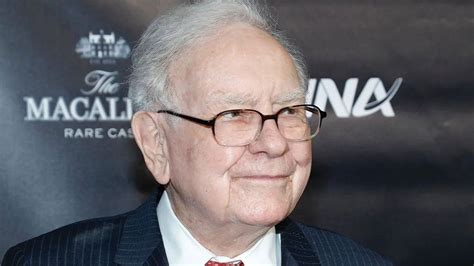
Elon Musk, after months of grappling with the complexities of scaling AI startup xAI, seemingly expressed a newfound appreciation for the challenges faced by established companies, a sentiment highlighted by a recent interaction with entrepreneur Scott Gerber. This “go faux pas,” as some observers are calling it, underscores the stark realities of transforming innovative ideas into sustainable businesses, even for someone of Musk’s stature and experience.
Elon Musk’s recent acknowledgement of the difficulties in building and scaling xAI, his artificial intelligence venture, suggests a deeper understanding of the operational hurdles faced by seasoned entrepreneurs and corporations. The exchange, sparked by a tweet from entrepreneur Scott Gerber, has highlighted the transition from visionary to operational leader, showcasing that even Musk, known for his ambitious endeavors, is confronting the real-world complexities of executing his vision. This realization marks a significant moment in Musk’s career, as he navigates the nuances of turning xAI into a competitive force in the rapidly evolving AI landscape.
The catalyst for this revelation appears to be the intensive work Musk has undertaken in the last four months to develop and scale xAI. According to reports, Musk has been deeply involved in the intricacies of the AI startup, confronting challenges related to talent acquisition, infrastructure development, and model training. These challenges, which many established companies deal with daily, seem to have brought a new perspective to Musk, who is known for his audacious goals and rapid execution.
The interaction between Musk and Gerber occurred on social media platform X, formerly known as Twitter. Gerber, a serial entrepreneur and founder of the Young Entrepreneurs Council, posted a comment reflecting on the realities of building a sustainable business. Musk responded, acknowledging the unexpected difficulties encountered in the process, signaling a departure from the often-optimistic projections associated with his ventures.
This episode has generated widespread discussion within the tech and business communities, prompting reflection on the nature of innovation, the challenges of scaling, and the importance of realistic expectations. Musk’s admission provides a valuable lesson for aspiring entrepreneurs and highlights the need for a balanced approach that combines visionary thinking with pragmatic execution.
Scaling Challenges at xAI: A Deep Dive
xAI, launched in July 2023, represents Musk’s foray into the competitive world of artificial intelligence. The company aims to “understand the universe,” a lofty ambition that requires significant resources, expertise, and a deep understanding of the existing AI landscape. While Musk has successfully disrupted industries such as electric vehicles (Tesla) and space exploration (SpaceX), the AI sector presents a unique set of challenges.
One of the primary challenges is talent acquisition. The demand for AI specialists, particularly those with expertise in machine learning, natural language processing, and deep learning, far exceeds the supply. Established AI companies, such as Google, Microsoft, and Meta, have been aggressively recruiting top talent for years, making it difficult for new entrants like xAI to attract and retain the necessary expertise. Musk has openly acknowledged the difficulty in building a world-class AI team, highlighting the competitive nature of the talent market.
Another significant challenge is infrastructure development. Training advanced AI models requires massive computing power and sophisticated infrastructure. This includes access to high-performance computing clusters, large datasets, and specialized hardware. Building and maintaining this infrastructure is a significant investment, requiring substantial capital and technical expertise. xAI must compete with established players who have already invested billions of dollars in building their AI infrastructure.
Data acquisition is also a critical challenge. AI models learn from data, and the quality and quantity of data directly impact the performance of the model. Access to large, high-quality datasets is essential for training state-of-the-art AI models. xAI must find creative ways to acquire and curate the data needed to train its models, whether through partnerships, public datasets, or proprietary data collection efforts.
Furthermore, xAI faces the challenge of model training and optimization. Training advanced AI models is a computationally intensive process that can take weeks or even months. It requires significant expertise in machine learning algorithms, optimization techniques, and distributed computing. xAI must develop efficient training pipelines and optimize its models for performance and accuracy.
Beyond these technical challenges, xAI must also navigate the ethical and societal implications of AI. This includes addressing concerns about bias, fairness, transparency, and accountability. xAI must ensure that its AI systems are developed and deployed in a responsible and ethical manner, avoiding unintended consequences and harmful outcomes. Musk has previously expressed concerns about the potential risks of AI, emphasizing the importance of safety and alignment.
Musk’s Evolution as a Leader: From Visionary to Pragmatist
Musk’s career has been characterized by ambitious goals and a willingness to take on seemingly impossible challenges. He has successfully disrupted industries such as electric vehicles, space exploration, and renewable energy, transforming them in the process. However, his experience with xAI suggests a growing recognition of the complexities and challenges involved in building and scaling a successful AI company.
This evolution reflects a broader trend in the technology industry, where the initial focus on innovation and disruption is increasingly being tempered by a recognition of the need for sustainable business models, ethical considerations, and responsible governance. As technology becomes more integrated into society, the focus is shifting from simply creating new products and services to ensuring that they are developed and deployed in a way that benefits humanity.
Musk’s acknowledgement of the challenges faced by xAI suggests a growing awareness of the need for a more balanced approach that combines visionary thinking with pragmatic execution. While his ambitious goals and disruptive spirit remain intact, he appears to be increasingly focused on the operational details and practical considerations that are essential for long-term success.
This shift in perspective could have significant implications for xAI and other Musk-led ventures. By recognizing the challenges and focusing on execution, Musk can increase the likelihood of success and ensure that his companies are built on a solid foundation. It also highlights the importance of learning from experience and adapting to changing circumstances, essential qualities for any successful leader in today’s rapidly evolving business environment.
The Broader Context: The AI Race and Its Implications
The AI sector is currently experiencing a period of intense competition and rapid innovation. Companies like Google, Microsoft, Meta, and Amazon are investing billions of dollars in AI research and development, seeking to gain a competitive advantage in areas such as natural language processing, computer vision, and robotics. New startups are also emerging, challenging the established players with innovative approaches and specialized solutions.
This “AI race” has significant implications for society as a whole. AI has the potential to transform industries, create new jobs, and solve some of the world’s most pressing problems. However, it also poses significant risks, including job displacement, algorithmic bias, and the potential for misuse.
The development and deployment of AI must be guided by ethical principles and a commitment to responsible innovation. This includes ensuring that AI systems are fair, transparent, and accountable, and that they are used in a way that benefits all of humanity.
Musk has been a vocal advocate for the responsible development of AI, warning about the potential risks of unchecked AI development and calling for regulations to ensure that AI is used for good. His involvement in xAI reflects his commitment to shaping the future of AI and ensuring that it is developed in a way that aligns with human values.
Gerber’s Perspective and the Entrepreneurial Reality
Scott Gerber’s initial tweet that sparked Musk’s response encapsulates the often-unseen reality of entrepreneurship. While the media often focuses on the glamorous aspects of startups – the funding rounds, the innovative products, and the charismatic founders – the day-to-day reality is often filled with hard work, unexpected challenges, and difficult decisions.
Gerber, as a serial entrepreneur and founder of the Young Entrepreneurs Council, has firsthand experience with these challenges. His perspective reflects a deep understanding of the operational complexities, the financial constraints, and the emotional toll of building a successful business.
His tweet served as a reminder that even the most successful entrepreneurs face significant challenges and that building a sustainable business requires more than just a great idea and a lot of funding. It requires resilience, perseverance, and a willingness to adapt to changing circumstances.
Musk’s response to Gerber’s tweet suggests a shared understanding of these challenges, despite the vast differences in their scale and resources. It highlights the common ground between entrepreneurs of all sizes and backgrounds and the universal challenges of building a successful business.
Conclusion: A Lesson in Humility and the Path Forward
Elon Musk’s recent interaction with Scott Gerber and his acknowledgement of the challenges faced by xAI represent a significant moment in his career. It demonstrates a willingness to learn from experience, adapt to changing circumstances, and embrace the complexities of building a sustainable business.
This episode serves as a valuable lesson for aspiring entrepreneurs, highlighting the importance of realistic expectations, pragmatic execution, and a commitment to responsible innovation. It also underscores the need for a balanced approach that combines visionary thinking with operational excellence.
As Musk and xAI continue to navigate the rapidly evolving AI landscape, their success will depend on their ability to learn from their mistakes, adapt to new challenges, and build a strong foundation for long-term growth. The journey may be difficult, but the potential rewards are immense.
Frequently Asked Questions (FAQ)
1. What prompted Elon Musk’s comments about discovering reality?
Elon Musk’s comments were prompted by a tweet from entrepreneur Scott Gerber regarding the day-to-day realities of building a sustainable business. Musk responded to Gerber, acknowledging the unexpected difficulties encountered while scaling xAI, his AI startup, suggesting a newfound appreciation for the operational challenges faced by established companies.
2. What are some of the key challenges xAI is facing?
xAI faces several key challenges, including:
- Talent Acquisition: Attracting and retaining top AI specialists in a highly competitive market.
- Infrastructure Development: Building and maintaining the massive computing power and infrastructure needed to train advanced AI models.
- Data Acquisition: Acquiring large, high-quality datasets to train its AI models.
- Model Training and Optimization: Developing efficient training pipelines and optimizing models for performance and accuracy.
- Ethical Considerations: Addressing concerns about bias, fairness, transparency, and accountability in AI systems.
3. How does this situation reflect Musk’s evolution as a leader?
This situation reflects Musk’s evolution from a purely visionary leader to one who is also more attuned to the practical and operational challenges of building a sustainable business. It demonstrates a willingness to learn from experience, adapt to changing circumstances, and embrace the complexities of scaling a company, particularly in the highly competitive AI sector.
4. What is Scott Gerber’s perspective on this issue?
Scott Gerber, a serial entrepreneur and founder of the Young Entrepreneurs Council, brings a perspective grounded in the realities of building and running a business. His initial tweet highlighted the often-unseen hard work, unexpected challenges, and difficult decisions that entrepreneurs face daily. He emphasizes that success requires more than just a great idea and funding, but also resilience, perseverance, and adaptability.
5. What are the broader implications of Musk’s involvement in the AI race?
Musk’s involvement in the AI race, through xAI, has significant implications. It underscores the intense competition and rapid innovation in the AI sector. His participation emphasizes the importance of ethical considerations and responsible development of AI. Musk has been a vocal advocate for AI safety and alignment with human values, suggesting that his involvement aims to shape the future of AI in a way that benefits society.
In-Depth Analysis and Expanded Context
The seemingly simple Twitter exchange between Elon Musk and Scott Gerber reveals deeper insights into the complexities of scaling innovative ventures and the evolution of leadership in the rapidly changing technology landscape. While Musk’s accomplishments with Tesla and SpaceX are well-documented, his foray into AI with xAI presents a new set of challenges that are testing his leadership and forcing a re-evaluation of his approach.
The AI Landscape: A Different Playing Field
Unlike the electric vehicle and space exploration industries, where Musk’s companies were pioneers in relatively nascent markets, the AI sector is already crowded with established players, each with significant resources and expertise. Google, Microsoft, Meta, Amazon, and a host of well-funded startups are all vying for dominance in this space, making it much more difficult for a newcomer like xAI to gain traction.
The nature of AI itself also presents unique challenges. Unlike building physical products like cars or rockets, AI development relies heavily on data, algorithms, and specialized talent. Access to high-quality data is crucial for training AI models, and the talent pool of skilled AI engineers is limited and highly sought after. Building the necessary infrastructure to support AI development, including powerful computing clusters and data storage systems, requires significant capital investment.
Moreover, AI development raises ethical and societal concerns that are not as prominent in other industries. Issues such as algorithmic bias, data privacy, and the potential for job displacement must be carefully considered and addressed. Musk has been a vocal advocate for the responsible development of AI, recognizing the potential risks and calling for regulations to ensure that AI is used for good.
The Importance of Operational Excellence
While Musk is known for his visionary ideas and audacious goals, translating those ideas into reality requires strong operational execution. This involves building a capable team, establishing efficient processes, and managing resources effectively. The challenges that xAI is facing highlight the importance of operational excellence in the AI sector, where success depends not only on innovative ideas but also on the ability to execute those ideas effectively.
Scaling an AI company requires a different skillset than building a prototype or launching a product. It involves managing complexity, coordinating across multiple teams, and adapting to rapidly changing circumstances. Musk’s recent comments suggest that he is gaining a deeper appreciation for these operational challenges and is focusing on building the necessary capabilities within xAI.
The Role of Leadership in Navigating Uncertainty
The AI sector is characterized by rapid innovation and uncertainty. New algorithms, techniques, and applications are constantly emerging, making it difficult to predict the future. Effective leadership in this environment requires the ability to adapt to change, embrace experimentation, and make decisions under uncertainty.
Musk’s leadership style has been described as both visionary and demanding. He sets ambitious goals, pushes his teams to achieve them, and is not afraid to take risks. However, his recent comments suggest that he is also becoming more aware of the need for collaboration, empathy, and a more nuanced approach to leadership.
Navigating the ethical and societal implications of AI also requires strong leadership. Musk has been a vocal advocate for responsible AI development, emphasizing the importance of safety, transparency, and accountability. He has also called for a public debate about the ethical implications of AI, recognizing the need for a broader societal dialogue about the future of this technology.
The Broader Implications for the Tech Industry
Musk’s experience with xAI has broader implications for the tech industry as a whole. It highlights the challenges of building and scaling innovative ventures in a rapidly changing environment. It also underscores the importance of operational excellence, responsible innovation, and ethical leadership.
As technology becomes more integrated into society, the focus is shifting from simply creating new products and services to ensuring that they are developed and deployed in a way that benefits humanity. This requires a more holistic approach that considers the ethical, social, and economic implications of technology.
Musk’s journey with xAI provides valuable lessons for aspiring entrepreneurs, tech leaders, and policymakers alike. It demonstrates the importance of realistic expectations, pragmatic execution, and a commitment to responsible innovation. It also highlights the need for a broader societal dialogue about the future of technology and its impact on society.
The Future of xAI and the AI Race
The future of xAI remains uncertain, but the company has the potential to become a significant player in the AI sector. Musk’s vision for xAI is ambitious: to “understand the universe.” This lofty goal requires a long-term perspective, significant resources, and a commitment to innovation.
xAI has assembled a team of talented AI researchers and engineers, and it is working on a range of projects, including the development of advanced AI models, new AI algorithms, and innovative AI applications. The company is also collaborating with other organizations, including universities and research institutions, to advance the state of the art in AI.
The AI race is far from over, and xAI has the potential to disrupt the established players and contribute to the development of AI in a way that benefits humanity. However, success will depend on the company’s ability to overcome the challenges it faces, build a strong foundation for long-term growth, and navigate the ethical and societal implications of AI responsibly.
Musk’s leadership will be crucial to xAI’s success. His vision, his ability to attract talent, and his willingness to take risks will be essential for driving innovation and achieving ambitious goals. However, he must also embrace a more collaborative and empathetic leadership style, recognizing the importance of operational excellence and responsible innovation.
The world is watching as Musk embarks on this new challenge. His experience with xAI will provide valuable lessons for the tech industry and for society as a whole. The future of AI depends on the ability of leaders like Musk to navigate the complexities of this technology and to ensure that it is developed and deployed in a way that benefits all of humanity.









